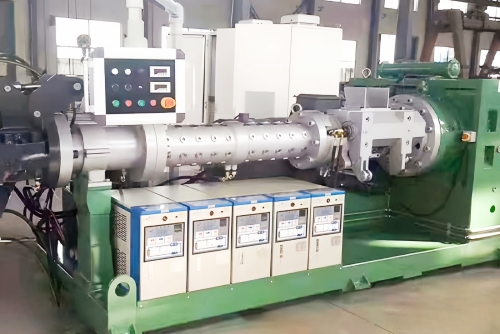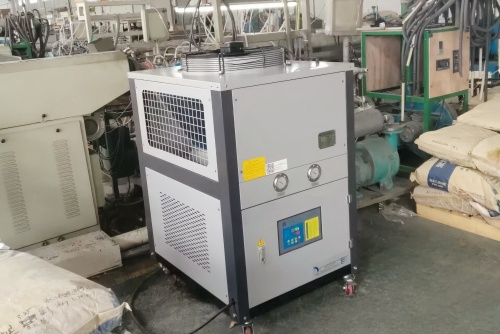
Mold temperature controllers for the plastics industry:
Mold temperature controller is mainly used to control the temperature of plastic molds to ensure that plastic products can be quickly cooled and maintain the desired shape during the injection process.

In plastic injection molding, blow molding, extrusion and other processes, the appropriate mold temperature can ensure that the plastic melt flows, fills and solidifies well in the mold. For example, for some engineering plastics that require a higher mold temperature to achieve a good molding effect, the mold temperature controller can accurately control the mold temperature within the required range, improve the surface quality, dimensional accuracy and mechanical properties of the product, reduce surface marks and internal stress, prevent the product from shrinking and deforming, facilitate demolding, and accelerate product shaping to improve production efficiency. The mold temperature controller can also be used for circulating water supply of the cooling system of the injection molding machine to improve the efficiency and stability of the injection molding machine.

Chillers for the plastics industry:
Chillers are mainly used to cool plastic products and molds. During the plastic processing process, a large amount of heat will be generated. If it is not cooled in time, it will affect the quality and production efficiency of the product. The industrial chiller quickly reduces the temperature of the mold and plastic products by circulating cooling water to prevent the product from deforming due to overheating and generating internal stress. In addition, industrial chillers can also play an important role in some plastic processing processes that require a low temperature environment. For example, injection molding, extrusion molding.
Mold temperature controllers and chillers for the rubber industry:
In the rubber processing industry, mold temperature controllers are widely used in industries such as rubber film calendering and hot press vulcanization. They can control the vulcanization process of rubber materials by heating and cooling the molds, thereby obtaining the required hardness and elasticity, and accurately controlling the temperature of the rubber mold. In the vulcanization process of rubber products, the appropriate temperature can ensure that the rubber is fully vulcanized and improve the physical properties and quality stability of rubber products. For example, for some special rubber products, the mold temperature controller can stabilize the mold temperature within a specific range according to the process requirements, thereby ensuring the dimensional accuracy and appearance quality of the product. At the same time, the mold temperature controller helps to improve production efficiency and shorten the vulcanization time.
Chillers are mainly used to cool rubber products, such as the production of automobile tires and rubber seals. They can also be used to cool production equipment, such as rubber mixers, calenders, etc. In the rubber processing process, the operation of the equipment will generate a lot of heat. If it is not cooled in time, it may affect the normal operation and service life of the equipment. The chiller can quickly reduce the temperature of the equipment by circulating cold water to ensure stable operation of the equipment. For rubber products, the chiller can quickly cool the products after vulcanization to prevent deformation and improve the dimensional stability and quality of the products.
Project Cases: